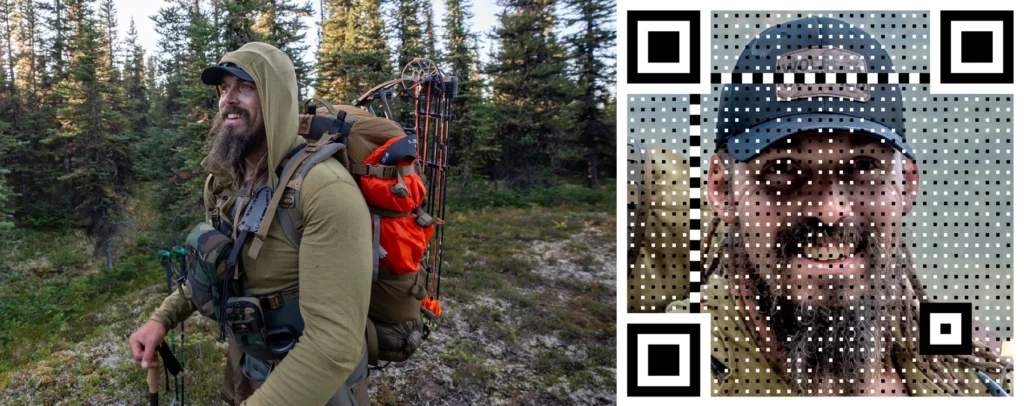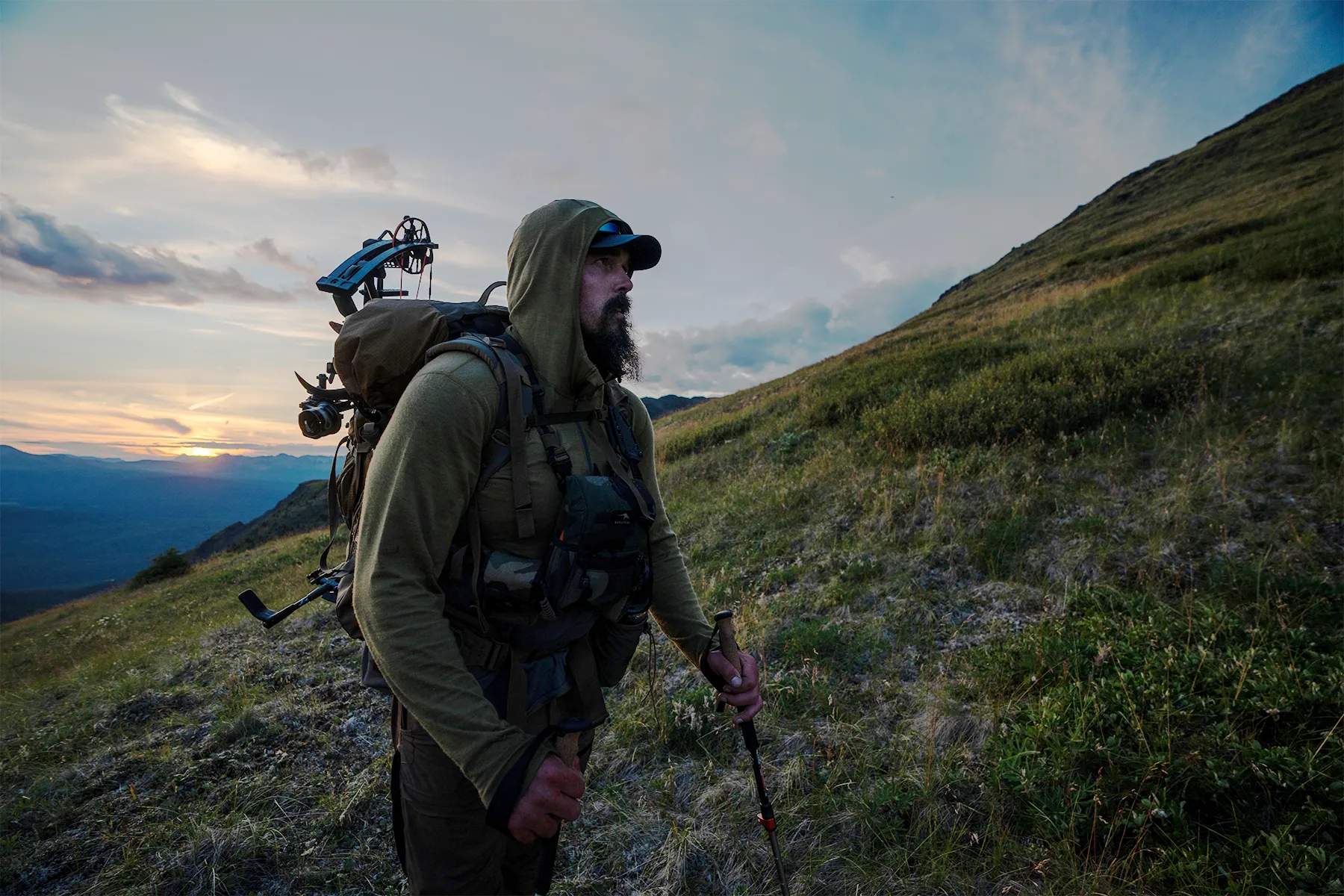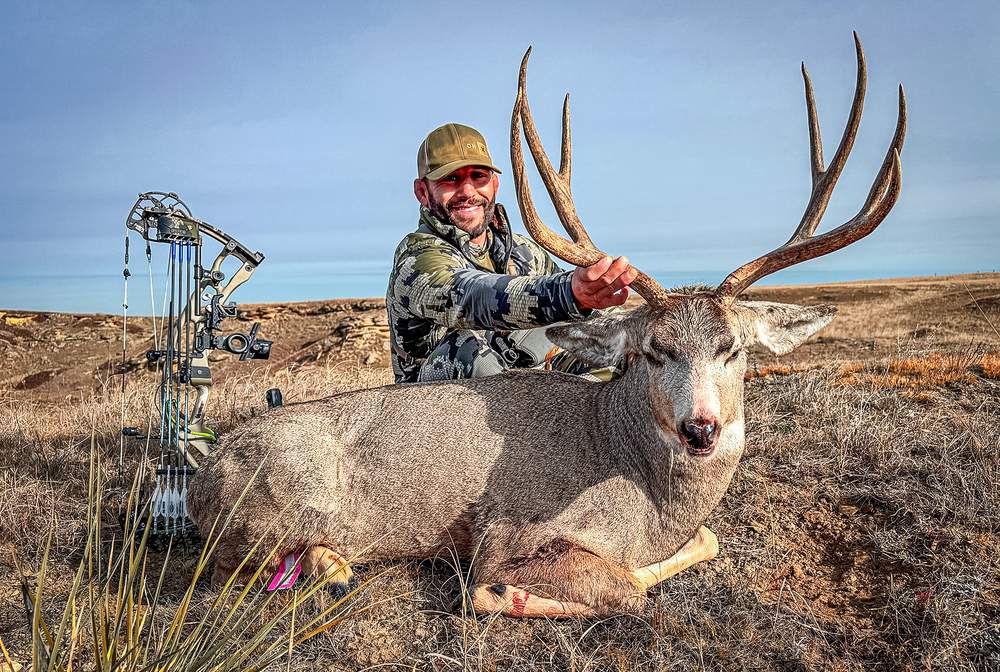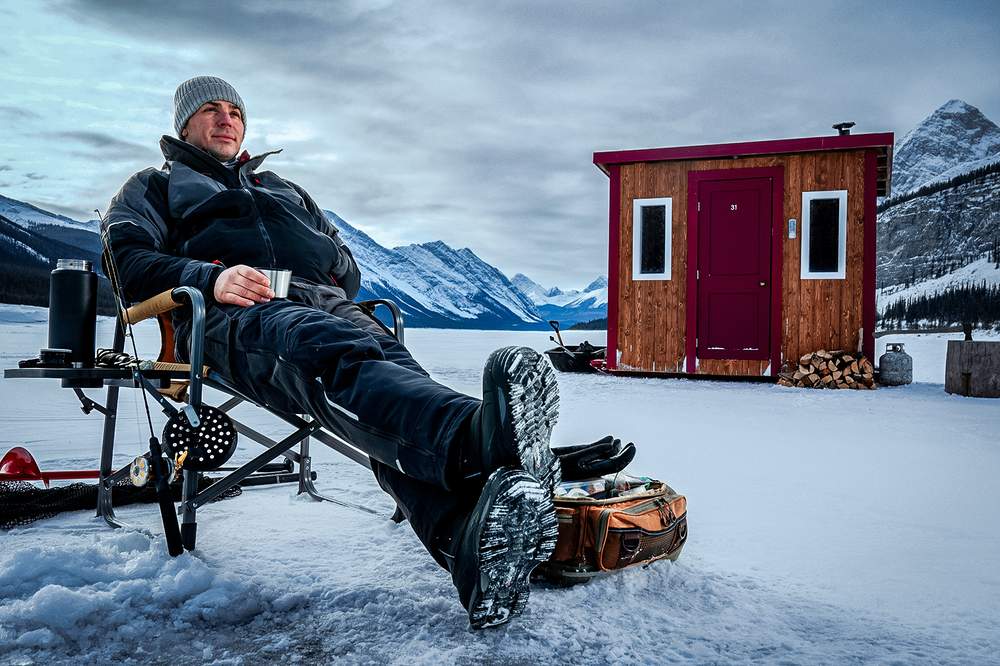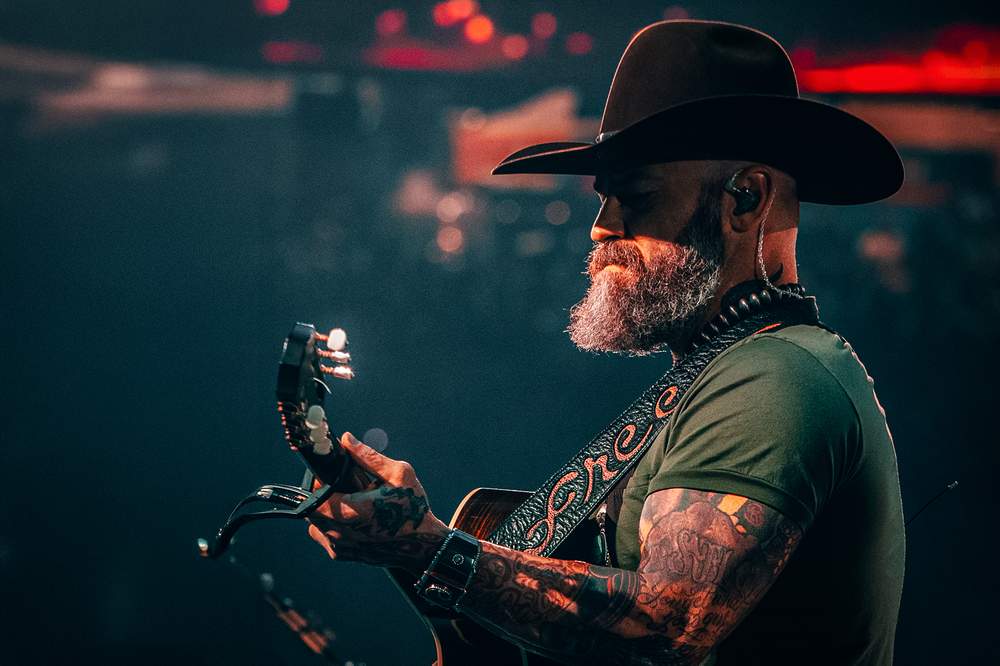Click to listen to the audio version of this article.
Find Out What The Wild Life’s All About For This Untamed & Unashamed Big Game Hunter & Outfitter
When you see Derek Wolfe in the news—whether it’s his sack of Cam Newton in Super Bowl 50 or him holding a 220-pound mountain lion in his arms—you form an idea of who he is in your mind. You might look at the photo of him with the mountain lion and think he’s just another celebrity hunting for thrills. However, what you don’t see is Wolfe advocating for conservation and hunters' rights. You also don’t see him donating a brand-new football facility to his hometown high school. Derek Wolfe is much more than meets the eye, and we had the chance to blitz into his life.
From College Football To The NFL
Born and raised in the Upper Ohio Valley, Wolfe had two passions: bowhunting and football. When he was 12, a friend gave him a hand-me-down bow, and Wolfe immediately fell in love with the sport.
“I just naturally got it right away,” he recalled. “I didn’t even take it to get fitted or anything; I just pulled it back and started shooting. Next thing you know, I was hitting ball caps at 60 yards.”
Wolfe soon started learning the strategy of bowhunting, covering everything from stand placement to scent control. It took him a year to make his first kill, but he still vividly remembers that moment.
“I’ll never forget how that felt,” he said. “I still get as excited [now] as I did that first time. I think that feeling is what you’re chasing each time.”
Wolfe grew up in an abusive household, and hunting, along with the freedom it provided, served as an escape for him during his youth. However, as Wolfe entered high school, football became a more serious pursuit. He recognized that football offered him a chance at a different life, prompting him to pursue his athletic career with tenacity.
Unfortunately, this meant that Derek Wolfe’s other passion had to take a backseat for a spell.
On The Gridiron
Wolfe’s intense focus on his football career paid off when the University of Cincinnati offered him a scholarship during his junior year of high school, and he eagerly accepted the opportunity. Wolfe reflects that coming from humble beginnings made his decision to commit before his senior year easy, and it turned out to be a fantastic choice.
Wolfe became a crucial player on a Cincinnati Bearcats team that was a dominant force in the country during his time there, finishing ranked in the top 25 in three of his four seasons. He completed his college career as one of the best players to wear a Bearcats uniform, ending his four seasons in the top 10 for career sacks and tackles for loss in the school’s history. Following his senior season, Wolfe was named the Co-Big East Defensive Player of the Year. His remarkable college career culminated in the Denver Broncos selecting him with the 36th overall pick in the 2012 NFL Draft.
Wolfe pressed the gas pedal to kick off his NFL journey, starting all 16 games as a rookie and making big plays. Early in his second season, disaster struck. Wolfe sustained a bruised spinal cord that had lasting repercussions and ultimately cut his season short. However, he was determined not to let this derail his career.
Wolfe returned from injury and truly showcased exceptional play over the next two seasons, earning a second contract with the Broncos in 2016. This $36.7 million deal kept him in Denver for four additional seasons. He signed this contract after a dominant Super Bowl run, during which he ranked third on the team in sacks, trailing only current Hall-of-Famer DeMarcus Ware and future Hall-of-Famer Von Miller.
In 2019, a season in which Wolfe was set to become a free agent, he had to muster strength through catastrophe once again. Wolfe had the best statistical season of his career and was poised to secure another significant contract after the season. In Week 13, he brutally dislocated his elbow, which ended his season and dashed his hopes of a big payday.
Wolfe went from what was expected to be a multi-year contract to a one-year, $3 million “prove it” deal with the Baltimore Ravens. This resulted in a second contract with Baltimore; however, two separate hip injuries ultimately ended Wolfe’s NFL career.
Considering the strength of his career despite several serious injuries, one might assume Wolfe would feel resentful about the unfortunate way his career ended. However, Wolfe chooses to focus on the silver lining.
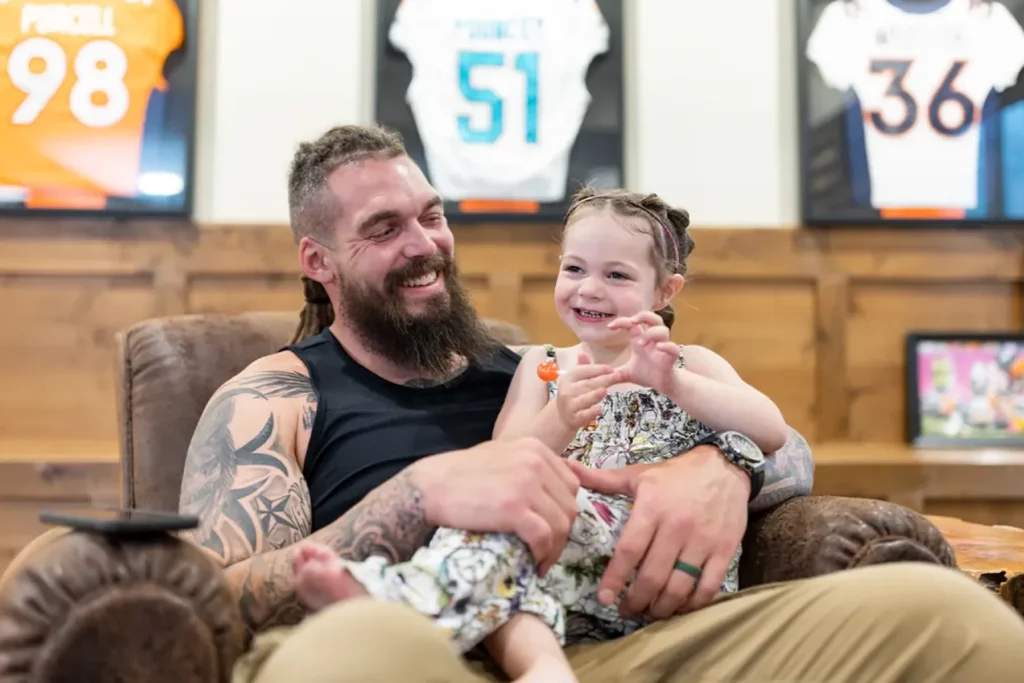
“Just when you think you have a plan, God has other plans,” he said. “That’s really how it is. You can’t let your plans get in the way of what God has planned for you. I really think it was a blessing in disguise, you know. I was getting concussed very easily. Part of me thinks God was looking out for me. I think that those injuries happened for a reason.”
Wolfe’s Return To The Outdoors
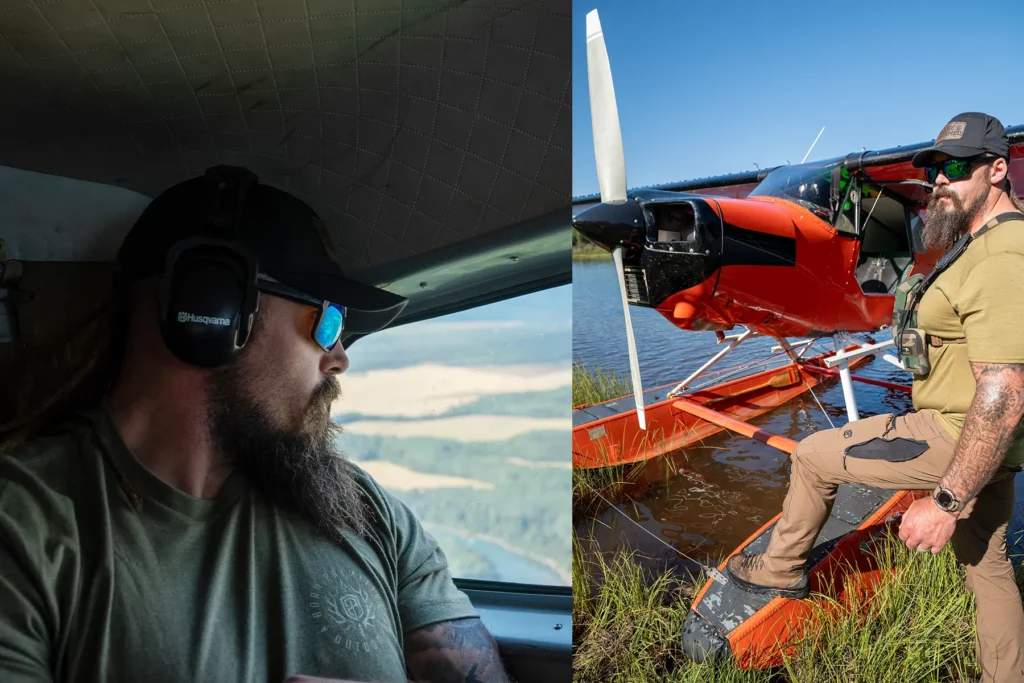
One benefit of Wolfe’s departure from Denver was his return to hunting and the outdoors. Due to the restrictive nature of Colorado’s hunting laws, Wolfe could barely hunt during his time with the Broncos. In Baltimore, however, Wolfe faced the opposite problem.
“When I got to Baltimore, I hunted on depredation tags, and the place I rented was on a soybean field,” he said. “You could shine your headlights out into that field at night, and there would be 80 to 100 deer in this tiny 3-acre food plot. So, I would sit that field in the evenings and try to do some management.”
Wolfe’s time in Baltimore rekindled his passion for hunting and the outdoors, and he dove back in head first after his retirement. Western hunting is Wolfe’s passion. Wolfe spent years honing his physical abilities for the football field and found that hunting massive bison and bull elk was what he was made for.
“The amount of work that it takes, the hiking, the mental fortitude, once you do kill something, the work that it takes to pack it out… I was like, ‘This is perfect.’ It was just a natural fit,” Wolfe said.
When asked what he considers a successful hunt, Wolfe chuckled and had a quick answer ready.
“Here are the three things that matter regarding a hunting camp. There’s the hunting, the people, and the food. You’ve got to have two of those three for it to be a success.” Wolfe said. “You can’t control the hunting, so you have to control the food and the people. If there’s good food and good people around, you know you’re having a good time.”
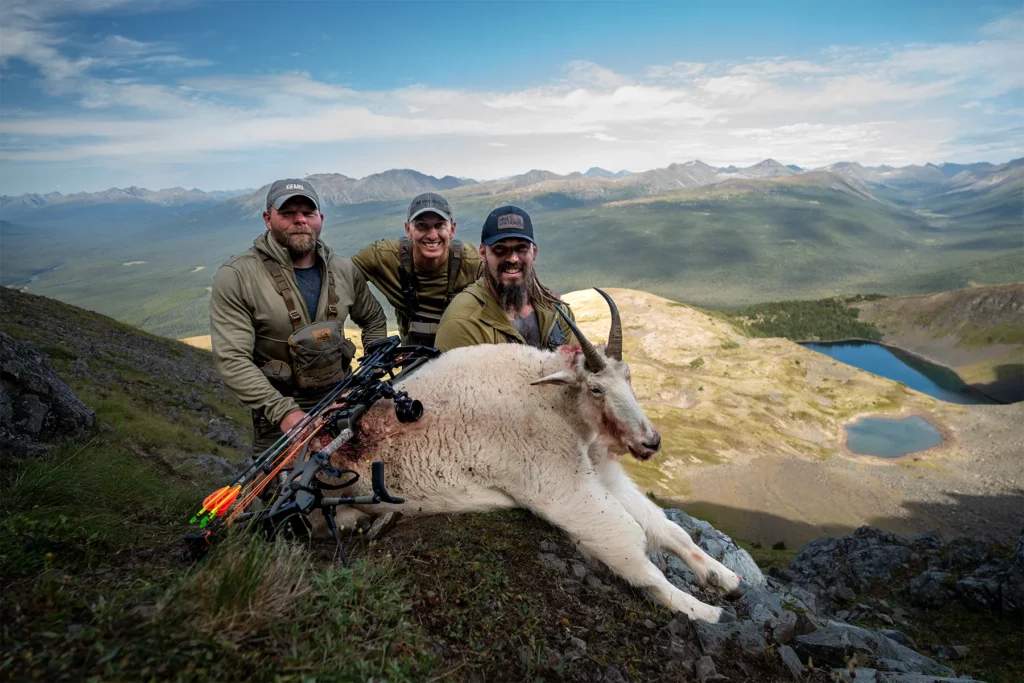
Untamed Podcast, Colorado Outfitting & More
Derek Wolfe’s new venture, Wolfe Untamed, operates on two fronts. The first is his podcast, where Wolfe interviews a variety of fascinating people, including veterans, former Special Forces operatives, athletes, celebrities, and more.
The second aspect is the Wolfe Untamed YouTube channel, where Wolfe films and documents his hunts. He invites viewers to join him on each journey and shares insights into his strategies and thought processes while describing what he learns from each new experience. He is also a co-owner of 7T Outfitters, a premium hunt club set on more than 2,000 acres in one of the most beautiful areas of western Colorado. To say Wolfe is living a wild life is an understatement.
Derek Wolfe’s Go-To Gear
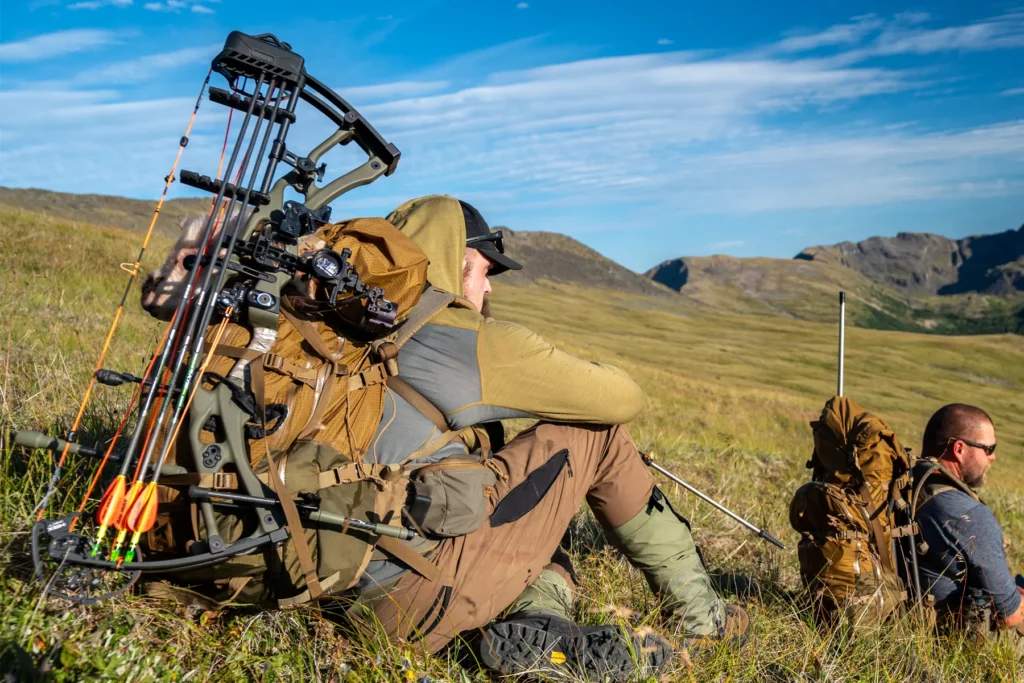
Current Bows: Hoyt RX-9, Hoyt RX-8 Ultra, PSE Mach 35 DS
Broadheads: Sevr, Beast, Iron Will, Vantage Point
Boots: Lathrop and Sons
Top & Pants: Born Primitive
Pack: Kifaru, Stone Glacier
Blades: Montana Knife Company, Half Face Blades
Hunt Preparation—Like A Wolfe!
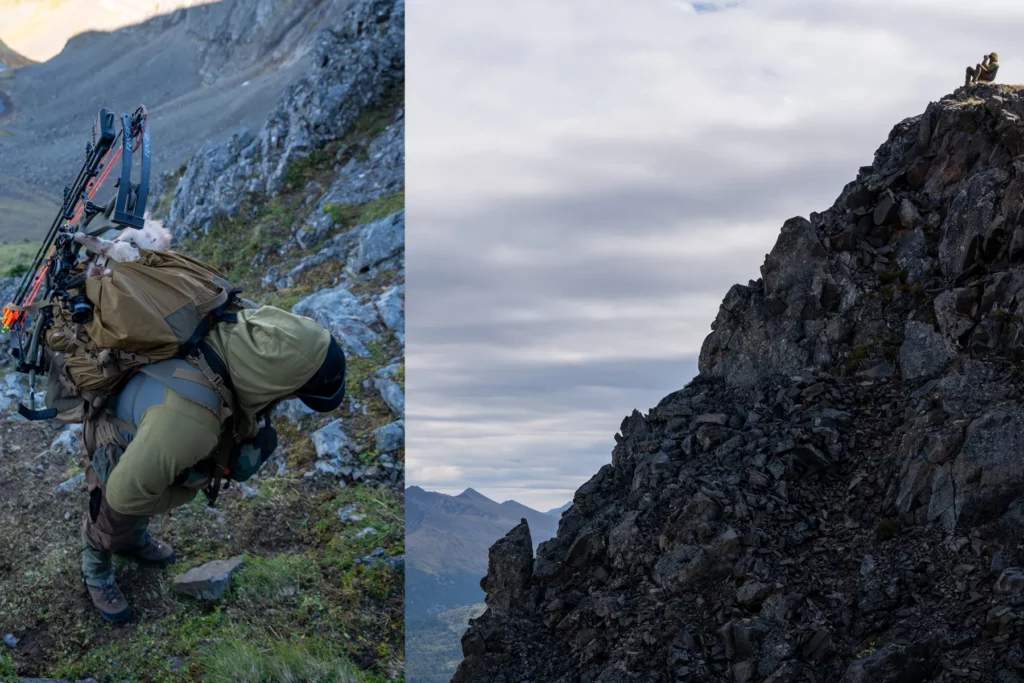
Wolfe approaches his physical preparation for hunting season as he did throughout his football career. He has a multi-phase off-season training program aimed at improving his strength and conditioning for hunting. In December, Wolfe begins with a “building phase,” concentrating on heavy lifting to rebuild the muscle he lost during the previous hunting season. Next, he shifts to muscle endurance exercises.
Wolfe emphasizes this strategy, as his hunts usually involve significant elevation changes over long distances that would leave most inexperienced individuals exhausted halfway up the first mountain. Once his strength and conditioning return, Wolfe focuses on high-intensity interval training. These workouts involve high-intensity cardio that raises his heart rate to 160 beats per minute, followed by practice with his bow. He does this to simulate hunting in the West, where you’re both physically and mentally spent when it's time to take your shot. By summer, Wolfe completes these three phases and then starts shedding excess weight as hunting season approaches.
Wolfe understands that his training is something most hunters lack time for. He suggests that the typical hunter planning a trip out West should focus on muscle endurance and conditioning.
“Once you start hiking in the morning, you’ve got to get above your thermals,” he said. “You have to climb right away. So, I’d say, go climb. Just walk up something. Because you don’t want it to be a shock when you get out there.”
